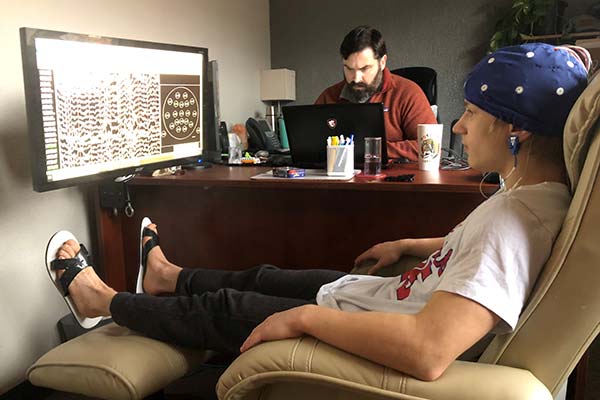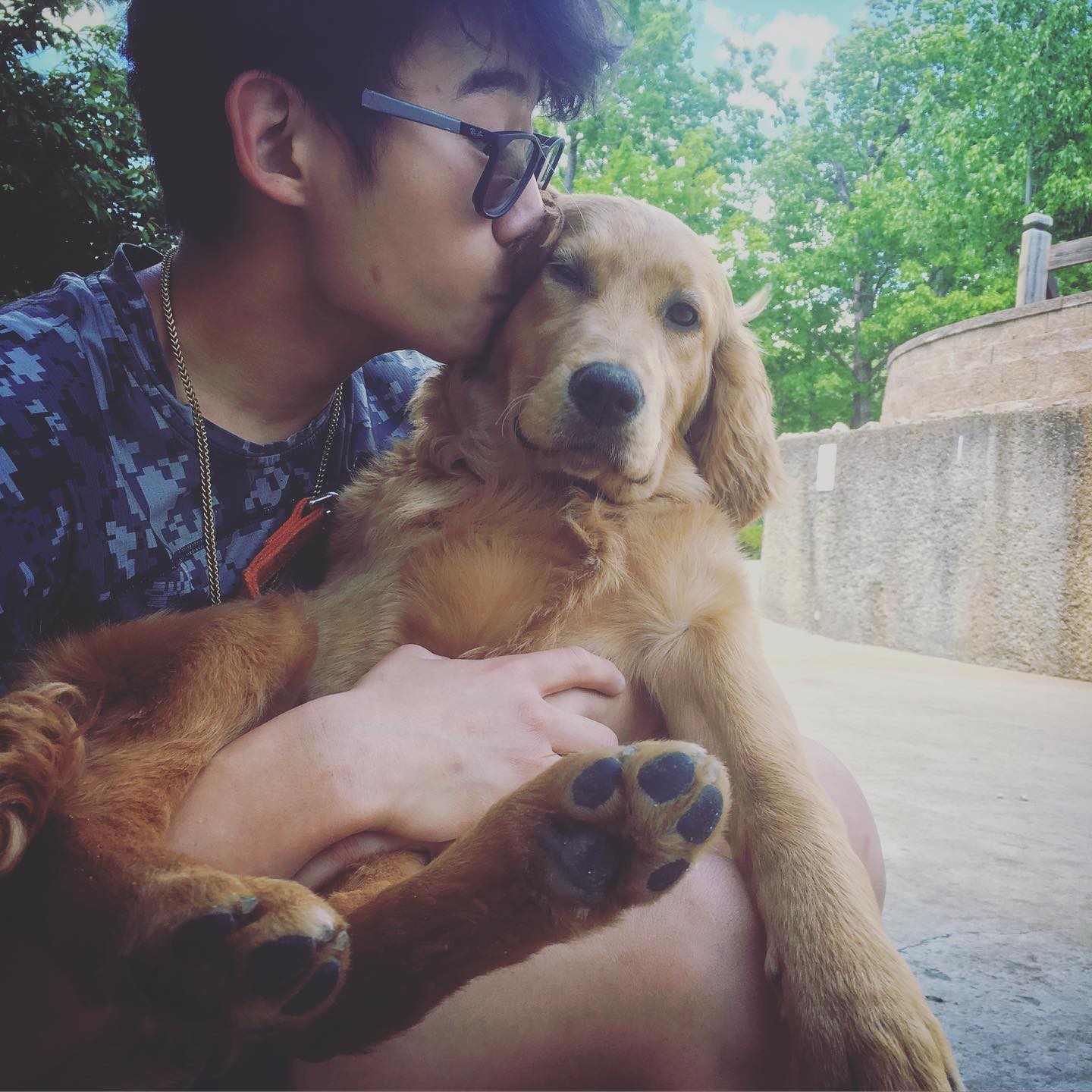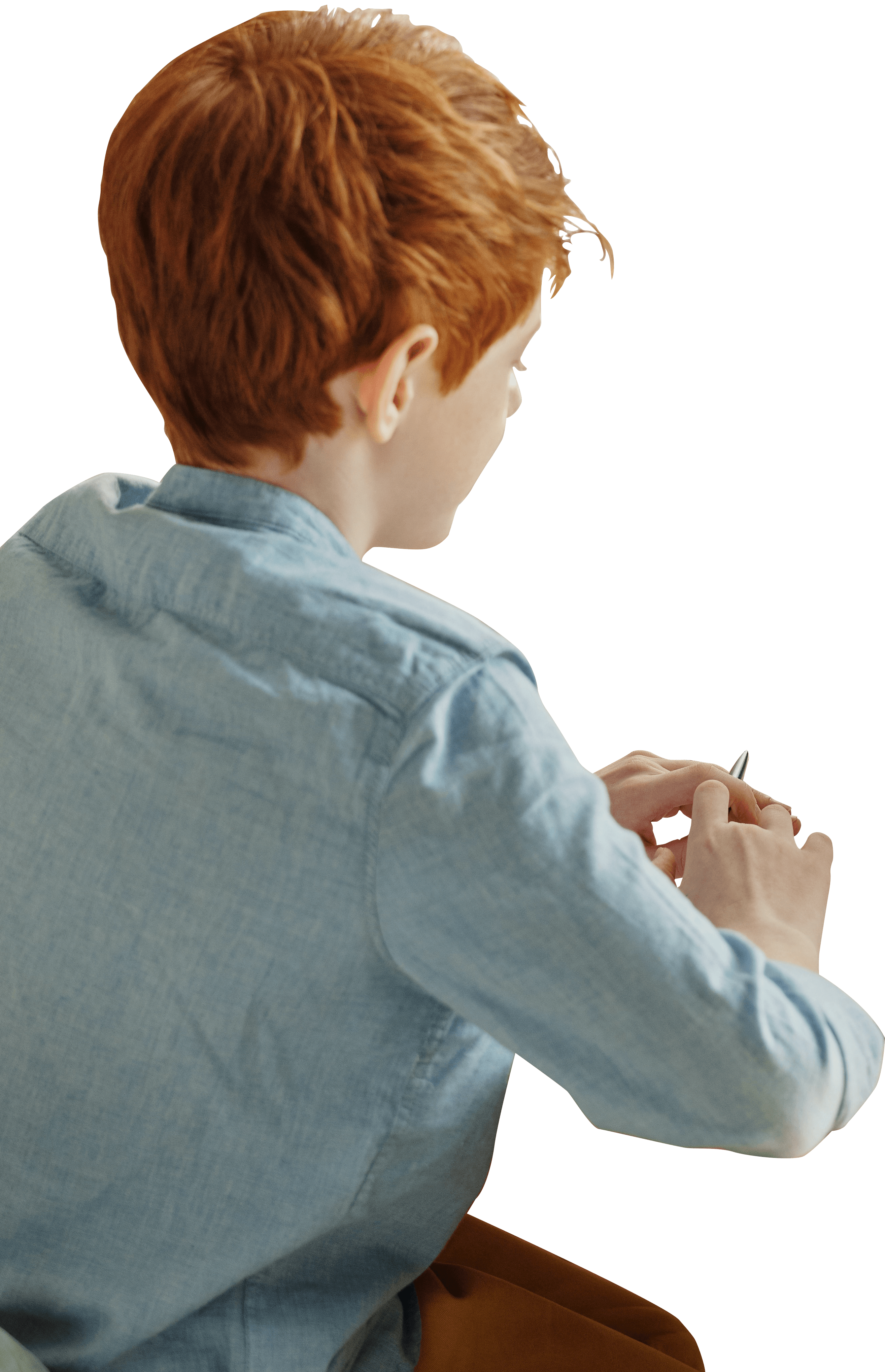Canine Therapy
Often, students will experience making mistakes with the canines and experience feelings of empathy, love, and acceptance as the canine quickly forgives and provides unconditional love. This allows the student to practice safe and healthy attachment, with the ultimate goal of transferring those relationship skills to safe human relationships (transferable attachment).

Mapping the brain with Neurotherapy
Neurofeedback (NFB) is electroencephalography (EEG)-biofeedback; it measures electrical brain-wave activity then transforms the frequencies into a digital signal which allows a computer to feed back the information to a student through video and sound. Its effect is that it helps to treat various psychological and physical disorders by shaping the way the brain behaves. This shaping improves the efficiency of the brain and provides the ideal functioning for healing and development to occur.
Adventure Therapy
Calo’s Adventure Therapy is a program that works with Calo students to help them in three main areas; Creating positive shared experience (which creates joy), Building self-efficacy, and encouraging students into the growth zone.





